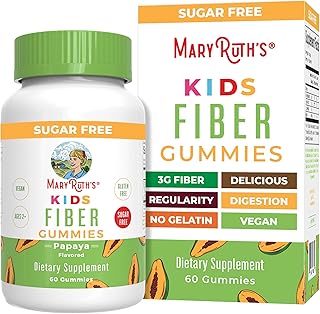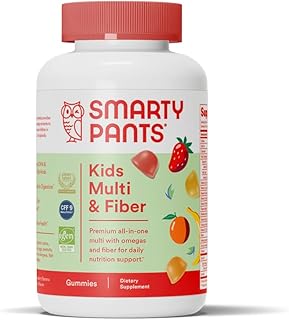Fiber is a crucial nutrient that plays a significant role in promoting optimal gut health and overall well-being for both adults and children. However, studies indicate that only a small percentage of Americans meet the recommended daily intake of dietary fiber. Experts emphasize the importance of fiber in children’s diets, as it not only reduces the risk of obesity and chronic diseases but also supports the development of a healthy microbiome.
During the first three years of life, children establish their microbiome, which influences various bodily functions. Therefore, it is essential to provide children with adequate fiber sources to nurture a healthy gut microbiome. Dietary fiber, derived from plants, consists of soluble and insoluble fiber types, each offering unique health benefits. Health experts recommend a balanced intake of fiber-rich foods to ensure optimal health.
The recommended daily fiber intake varies by age group, with children needing different amounts at various stages of growth. It is crucial to introduce fiber gradually into a child’s diet to prevent potential digestive issues. Increasing plant-based, fiber-rich foods while maintaining proper hydration is key to reaping the benefits of fiber without adverse effects.
There are numerous high-fiber foods that parents can incorporate into their children’s meals to boost their fiber intake. From ancient grains and apples to avocados and beans, there is a wide variety of nutritious options available. These foods not only provide fiber but also deliver essential nutrients, vitamins, and minerals that support overall health.
Chia seeds, for example, are a powerhouse of fiber, vitamins, minerals, and omega-3 fatty acids, offering heart and brain benefits. Their gel-like consistency when mixed with liquid makes them a versatile ingredient for various dishes. Other fiber-rich foods like popcorn, guava, sweet potatoes, and oats provide a delicious way to increase fiber intake in children’s diets.
While fiber supplements can be beneficial if it’s challenging to meet daily fiber requirements through food alone, experts advise against relying solely on supplements. It is crucial to consult with a pediatrician before introducing any supplements to ensure they are suitable for a child’s diet. High-quality fiber gummies or greens powders may be viable options for supplementing fiber intake.
In conclusion, incorporating a diverse range of seeds, nuts, legumes, vegetables, and fruits into children’s diets is essential to ensure they receive an adequate amount of fiber. By offering a variety of fiber-rich foods and exploring kid-friendly recipes, parents can make the process enjoyable and beneficial for their children’s health in the long run.
📰 Related Articles
- Study Reveals Surprising Benefits of Fermented Foods Beyond Gut Health
- Incorporating Fiber-Rich Foods for Optimal Health: Expert Advice
- Dr. Rajan Advocates Protein and Fiber-Rich Foods for Health
- Veterinarians Recommend Top Dry Dog Foods for Canine Health
- Unlock Health Benefits with Probiotic-Rich Fermented Foods






